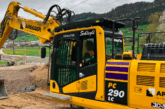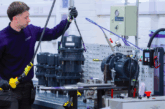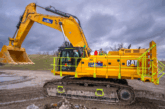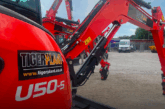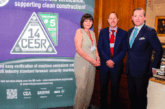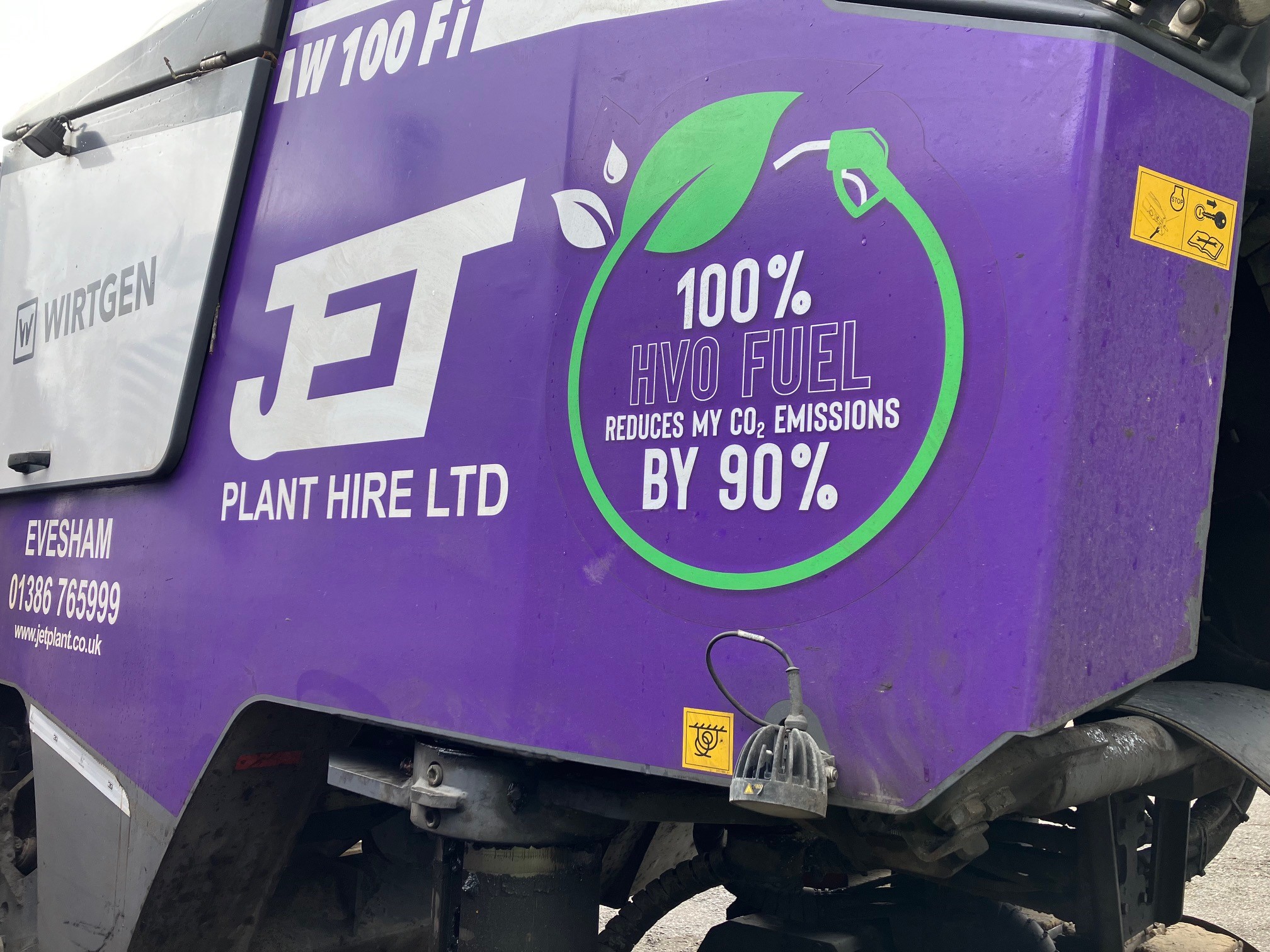
A lower carbon approach is no longer a ‘nice to do’, it should be central to every organisation’s strategy in the current climate, explains Andy Williams, HSEQ manager at UK road planing contractor Jet Plant.
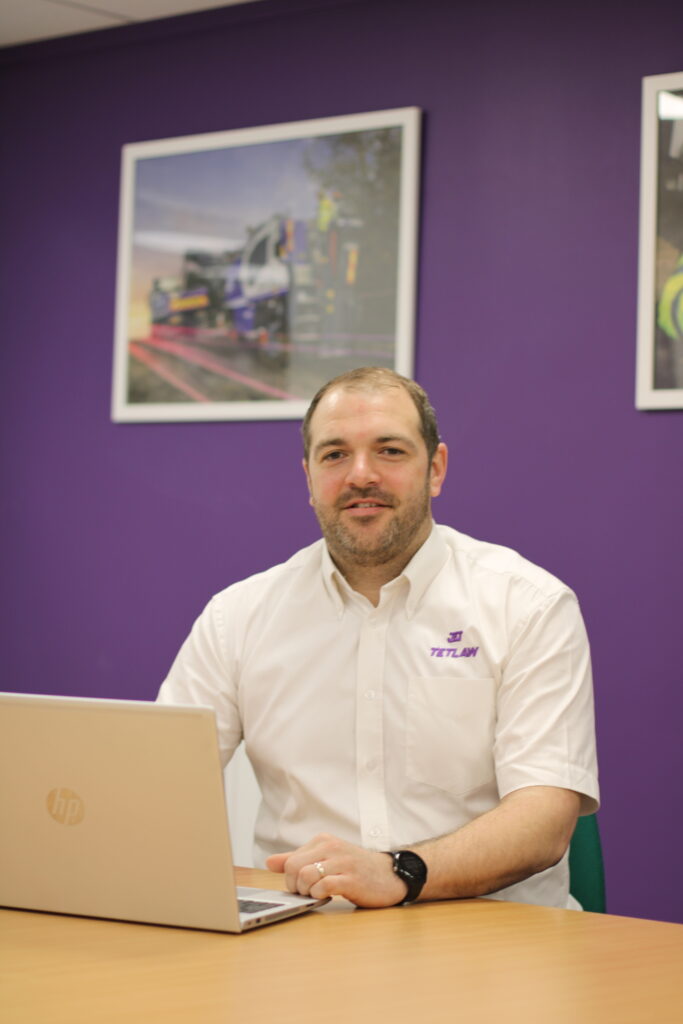
When Jet Plant set out our target to reduce fossil fuel usage by 50% by 2025, it was an ambitious yet necessary objective. Around 40% of UK carbon emissions are linked to the built environment, according to the government, and while this includes emissions linked to heating buildings, construction activity alone accounts for around 50 million tonnes of CO2 emissions each year.
With the UK obligated to achieve net zero (a 100% reduction of greenhouse gas emissions compared to 1990 levels) by 2050, it’s clear we all need to do our bit.
Carbon neutrality is vitally important for us, but it is also of increasing importance for our customers, and we are seeing more of them coming to us asking how they can reach net zero faster.
Around three quarters of our business comes from small to medium sized privately owned surfacing contractors who know what they need to achieve, but might not have the understanding, budgets or in-house expertise to make significant changes in the short-term. Often they rely on suppliers to help contribute to their sustainability efforts.
We have put a lot of time and investment into developing a comprehensive sustainability plan. We are part of a supply chain and everyone in that chain knows it is something they will have to deliver, however we have taken the lead, giving others an example to follow. Whilst doing so we continue to invest and innovate as we set the standard for sustainable road planing in the UK.
Sustainable practices
Our sustainability strategy includes a number of measures to help reduce carbon emissions and improve sustainable performance across the business. Last year we announced the decision to fuel all planers with hydrotreated vegetable oil (HVO), which is produced from waste materials. As a direct result we have comfortably achieved the 50% reduction in fossil fuel usage target from the planer fleet in comparison to the corresponding months the previous year.
We’re sourcing utilities from only renewable carbon neutral providers. We’re switching all company cars to electric vehicles. And we’ve taken steps to ensure responsible disposal and recycling of plannings.
In February, we also announced a new £3 million investment in state-of-the-art machinery, including lorries and planing machines, to further boost our sustainability credentials.
The Volvo trucks we purchase are manufactured in carbon neutral factories with low environmental impact. Our fleet now run with eight wheel Tridem tippers so when transporting the planer to site they have the same manoeuvrability as the six wheeler tippers.
This increased payload means that for every 90 tons of plannings to be removed from site the tridem makes five trips as opposed to six trips with a six wheeler. The means reduced CO2 emissions but also less HGV movements and less congestion.
Our vehicles are specified with the environment and reduction of CO2 emissions as a priority, Euro 6 engines are also the latest level currently available and provide the best fuel savings possible. We review fuel suppliers to ensure all are ethical and traceable on a regular basis ensuring only pure HVO is provided and not blended or mixed. All are ISCC certified or ZEMO accredited.
We also recognise that the key to a more sustainable operation will be better utilisation of our equipment – for example, we’ve enhanced our fleet management systems to reduce total fuel consumption. This latest investment will help meet the growing demands of our customers, but it will also support us to continue to operate in a more sustainable way.
We are utilising external training resources to improve the performance of our HGV drivers. This has already seen a number of drivers massively improve both their mpg and idling time performance.
Jet Plant is also on the pathway of reducing paperwork that the operators and drivers complete every day. All daily defect checks for HGVs, vans and planers are now digital and we are currently working on switching to digital duty of care notes and hazardous waste consignment notes. This will further reduce the amount of paperwork the business produces.
Looking forwards
Looking to the future, it is evident that the importance of environmental performance and carbon emissions will only keep growing. National and international targets are edging closer, and consumer awareness is rising which adds value to the commercial and reputational benefits of responsible operations.
Those who measure and disclose their performance with accuracy will stand out from the competition. In fact, large companies in the EU that meet specific eligibility criteria are already obligated to measure and report their environmental performance under new regulations.
Jet Plant has set out five commitments on our journey towards a more sustainable business: To reduce well to wheel CO2 emissions by an average of 50% per shift to reduce fossil fuel usage by an average of 50% per shift; to improve mpg performance by 5% across all fleet; for all new company cars to be fully electric vehicles (already in place); and for all utilities to be sourced from renewable carbon neutral providers (also in place).
Despite the good progress that has been made, we recognise that just being the sustainability leader in the industry is not enough,


